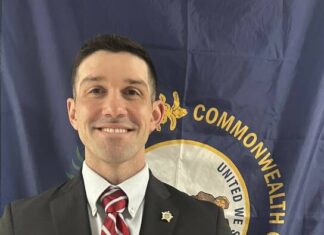A Kentucky Department of Agriculture Pilot program is allowing farmers in the commonwealth to farm hemp.
On Thursday, Tom Keene, agronomy specialist with the University of Kentucky, discussed the laws and how to farm hemp in the state during a program at Maysville Community and Technical College. He also gave some background information to show how popular hemp growing has become.
“Hemp is hot and hemp is happening,” he said several times throughout the evening. “I liken it to the gold rush in the 1840s and 1850s. Everyone is rushing to get their prize.”
According to Keene, it is still illegal to grown industrial hemp outside of the KDA program.
“So, if you decide you want to grow it on your own, without the program, you are breaking the law,” he said. “They will come and lock you up.”
Keene said there is a detailed application that must be submitted before hemp can be grown on a farm.
Keene also touched on information about the plant.
According to Keene, hemp is mostly a summer annual.
“You will never come across a plant that is more photo sensitive than industrial hemp,” he said. “It has to be planted every year just like corn and soy bean. You can plant a seed in the ground, you can do transplants.”
According to Keene, anyone planting in 2019 should have already made arrangements to secure seeds.
“You should have already made arrangements with your processors to get your seeds,” he said. “You’re going to be planting in about seven to eight weeks, so you should have already made arrangements to get everything done. What are you going to grow for; grain, fiber, floral material?”
Keene said having a processor is important.
“Most people are going to work with a processor,” he said. “That processor will tell you what genetics they want to use, how they want it planted, when they want it planted, how they want it harvested, when they want it harvest, where they want it stored and when they want it delivered. Processors are a good help for a farmer, but they’re the ones calling the shots.”
He also said those purchasing seeds need to research where they are getting the product.
“You want to make sure you have a certified seed tag with a germination on it,” he said. “I don’t care where you get your seed from, but whatever you get it, whenever you get it, it has to be shipped to KDA first so they can log it in and get it in the system. Then you can pick it up in Frankfort. As soon as you get it, do your own germination test.”
Throughout the evening, Keene gave information on the trend in hemp growth and the economics side of it.
More information on growing hemp and the regulations surrounding it can be found at hemp.ca.uky.edu or by contacting [email protected] or [email protected].





